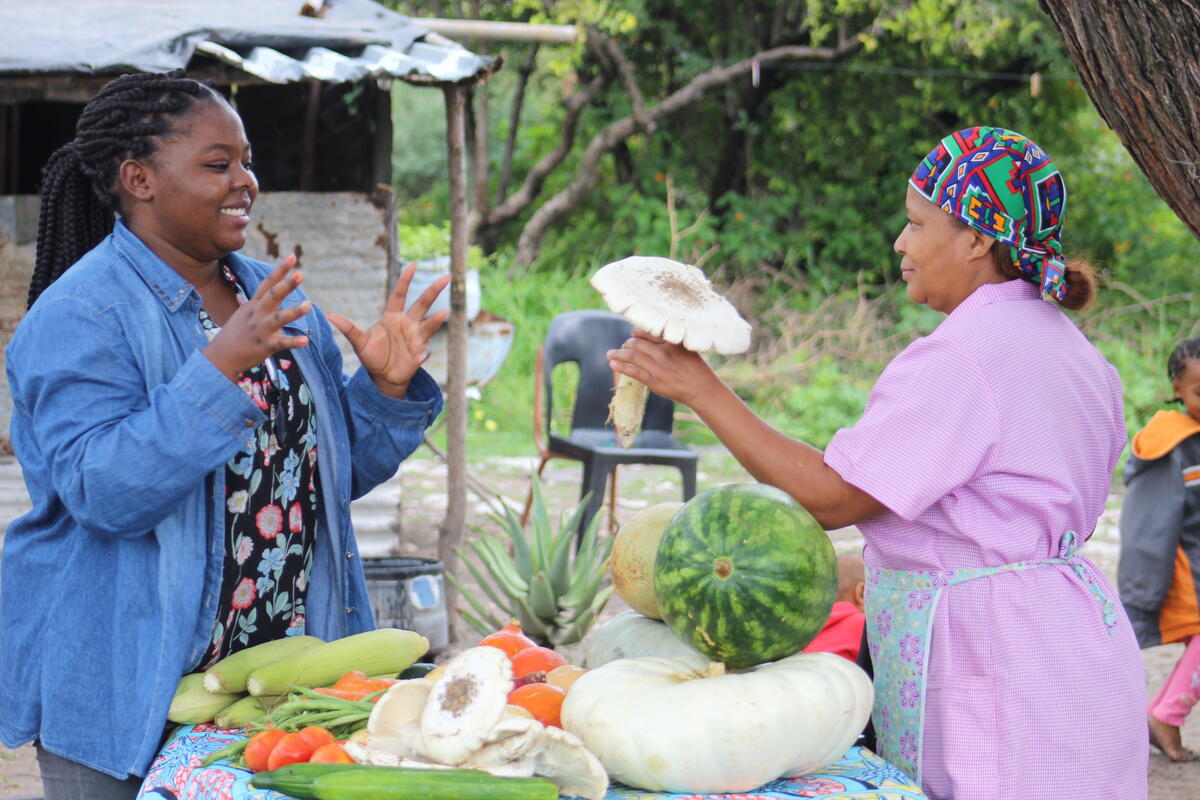
To wrap up the “Virtual Study Visit: Brazil” with Namibia, which had its first session at the beginning of the month, government and World Food Programme (WFP) representatives in the country took part in a virtual meeting on Thursday 16 November. The visit is promoted by the WFP Centre of Excellence against Hunger Brazil in partnership with the Brazilian Cooperation Agency (ABC, in Portuguese) of the Ministry of Foreign Affairs (MRE, in Portuguese) and the National Fund for Education Development (FNDE, in Portuguese), and was supported by the Brazilian Embassy in Windhoek.
The meeting revolved around the videos that make up the Virtual Study Visit and detail the Brazilian National School Feeding Programme (PNAE, in Portuguese). Among the topics covered were how the programme is funded, the main legal frameworks, institutional capacity, design and implementation, community participation and the role of family farming in school feeding.
In Brazil, school feeding is a constitutionally guaranteed right, with financial resources provided for in the Ministry of Education’s annual budget, and it is a free and universal public policy that reaches more than 40 million students every day. “The Brazilian government firmly believes that investing in food security and nutrition for the younger generations is an investment in development, equality and the guarantee of human rights,” said FNDE president Fernanda Pacobahyba during her speech.
Among the main questions asked by the Namibian representatives were how the legal structure of school feeding works in Brazil, how resources are managed locally in the programme and how the PNAE covers indigenous, traditional and quilombola populations. “This is a unique opportunity for us to reflect on the information obtained and the lessons learnt during the Study Visit. We look forward to future collaborations,” said Edda Bohn, Deputy Executive Director of Formal Education at the Namibian Ministry of Education.
The “Virtual Study Visit: Brazil” was created in 2021 as a way of conducting exchanges between Brazil and other countries in the global South in an online format, thus saving resources and making it possible for visits to continue even in the context of the COVID-19 pandemic. It covers the most significant aspects of the messages communicated during an on-site visit to Brazil, supporting the dissemination of the key elements that have been fundamental to the success of Brazilian policies in the fight against hunger and food insecurity.
“This Virtual Study Visit is a successful project that began during the pandemic, as a result of the partnership with the Brazilian government and which over the last two years has had the active participation of countries such as Sierra Leone, Angola, Ethiopia and Lesotho,” added Daniel Balaban, Director of the Centre of Excellence.




